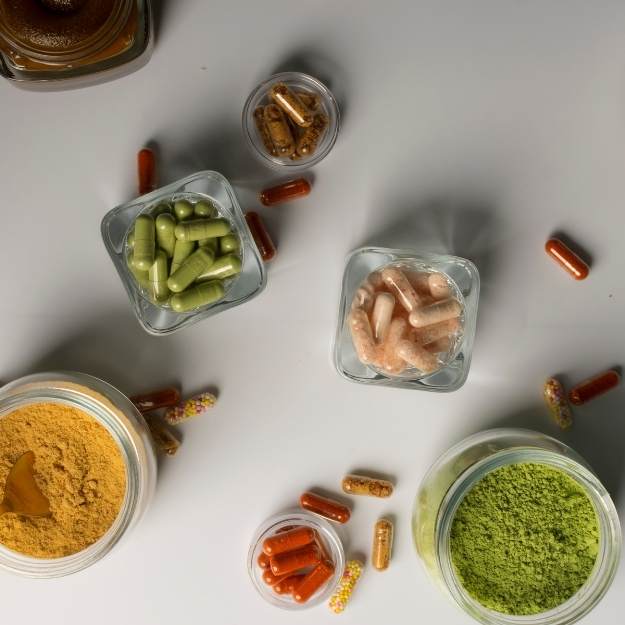YeshaA recent study from the University of Oxford found that genetic factors only account for about 2% of the risk of early death.
Modern science is increasingly demonstrating that our lifestyle plays a much greater role in our health than our genetic predisposition. A recent study from the University of Oxford found that genetic factors account for only about 2% of the risk of early death, while environmental and lifestyle factors have a much greater influence at 17%. This means that we have a large degree of control over our well-being.
Negative habits: The invisible health thieves
Many habits that seem to provide us with short-term relief or pleasure can have a significant impact on our health in the long term. Here are some of the most important risk factors:
-
Smoking : The biggest risk factor for numerous diseases, from cardiovascular disease to cancer.
-
Alcohol consumption : Regular alcohol consumption can cause organ damage and weaken the immune system.
-
Drug use & drug abuse : Disrupt the natural metabolism and can lead to psychological and physical dependence.
-
Lack of exercise : Increases the risk of diabetes, obesity and cardiovascular disease.
-
Chronic stress : Causes inflammation in the body, weakens the immune system and can promote depression.
-
Lack of sleep : Less than seven hours of sleep per night impairs cell regeneration and memory.

Finding meaning, creating value and giving gifts not only promote personal happiness, but also improve our mental and physical health in the long term through emotional fulfillment and social connectedness.
The positive changes: How we can actively improve our health
Fortunately, we can actively counteract this and put our health on a stable footing. Several factors play a role in this:
1. Exercise as the key to vitality
Physical activity is one of the best strategies for a long and healthy life. It improves metabolism, reduces stress, and strengthens the heart. The recommendation: At least 30 minutes of exercise a day, whether walking, cycling, or strength training.
2. Healthy nutrition: The right supply for the body
Nutrient intake is essential. A balanced diet rich in antioxidants, omega-3 fatty acids, and vitamins can slow the aging process. Particularly important are:
-
Fresh fruits and vegetables (rich in antioxidants)
-
Healthy fats (e.g. avocado, nuts, olive oil)
-
Proteins (for cell regeneration and muscle building)
3. Resolve conflicts and find emotional balance
Inner contentment and mental well-being significantly influence our health. Unresolved conflicts and long-term stress can cause physical ailments. Techniques such as meditation, mindfulness, and targeted conversation help to release emotional blockages.
4. Finding meaning as the basis for a happy life
People who find meaning in their lives are often healthier and more resilient to stress. Those who are passionate about something, whether professionally or through hobbies, tend to live more fulfilling and contented lives.
5. Enrich your everyday life with healthy routines
Simple but effective habits can sustainably improve our health:
-
Integrate daily exercise into your everyday life (e.g., use stairs instead of the elevator)
-
Take conscious breaks to reduce stress
-
Eat mindfully to relieve the digestive system
-
Maintain social contacts to promote emotional stability

Negative habits such as smoking, lack of exercise, unhealthy diet and chronic stress can shorten our lifespan, while conscious routines, a nutrient-rich diet and regular exercise make us healthier and more vital.
6. Proactively supply the body with nutrients
An optimal supply of nutrients is essential for energy, cellular health, and longevity. Supporting mitochondria, the "powerhouses" of our cells, and a healthy gut, which is crucial for our immune system and vitality, is particularly important.
-
Strengthen mitochondria : Cell energy production can be improved through targeted intake of coenzyme Q10, B vitamins, magnesium and antioxidants.
-
Promote intestinal health : Probiotics, fermented foods and fiber strengthen the intestinal flora and optimize nutrient absorption.
-
Support detoxification : Green leafy vegetables, chlorella, lemon water and intermittent fasting help eliminate toxins from the body and relieve the liver.
7. Creating value, giving meaning and giving as a source of happiness and satisfaction
According to positive psychology, creating meaning and value are crucial not only for personal development but also for long-term happiness and inner fulfillment. People who actively create value—whether through creative work, social projects, or volunteer work—find their lives more meaningful and fulfilling.
-
Giving as a happiness factor : Studies show that giving and sharing resources (time, knowledge, material goods) increases happiness and creates lasting positive emotions.
-
Value creation as a source of energy : Anyone who does something meaningful – be it a hobby, a social initiative or solving a social problem – draws long-term motivation and emotional stability from it.
-
Strengthening social connectedness : Collective value creation creates deep interpersonal connections that have a positive impact on mental and physical health.
Our health is in our hands
Recognizing that our lifestyle plays a crucial role gives us the power to actively shape our lives. By replacing harmful habits with healthy ones, we can increase our life expectancy and enhance our well-being. Every step in a healthier direction is a step toward more energy, stability, and self-realization.



Share:
The most important investment: Investing in yourself
The ORY Plan: The ultimate insider tip for fast muscle building